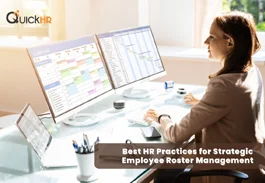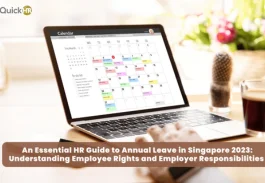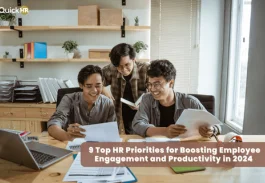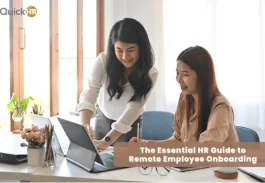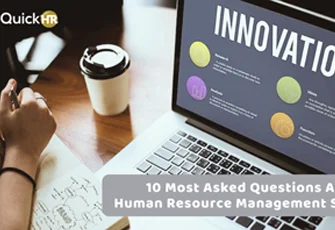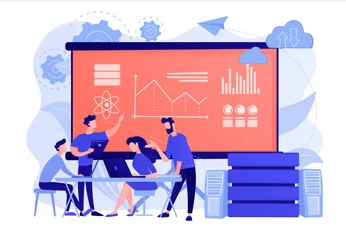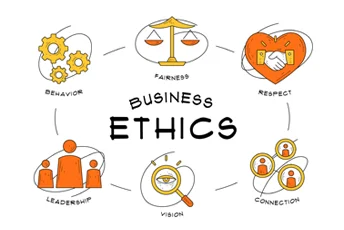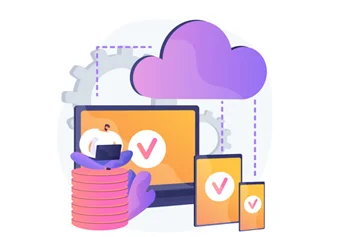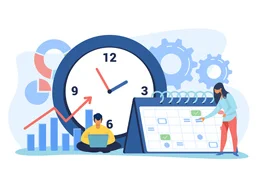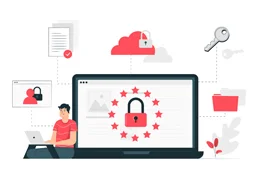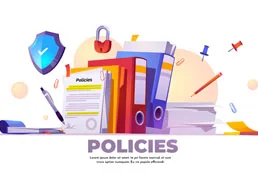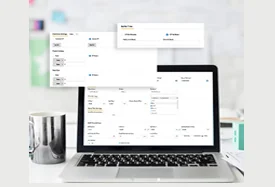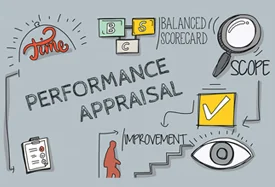
How to Manage Tough Conversations With Employees According to HR Leaders
Posted on 02 March 2023 in Business | Anna Beatrice
Many new and even long-time HR managers are struggling to navigate their way towards addressing sensitive issues and concerns with their employees
But no worries, we’re here to help! We’ve asked HR leaders from various industries across the globe to find out how to effectively handle difficult conversations with employees.
Read on to discover the smartest approaches you can try to successfully manage tough discussions with your team!
Be as Specific as Possible
Avoid Making Assumptions About The Employee’s Intentions
Keep It Private
Listen and Show Respect to Employees
Balancing Out Negative With Some Positive
Avoid Placing Blame On the Other Party
Use a Transcribing Tool During The Interaction
Avoid Attacking Or Judgmental Attitude
Have a Mediator Present
Don't Confront, Find a Solution Together
Lead With a Growth Mindset
Imagine You're at the Family Dinner Table
Confront Behaviors, Not Attributions
Be as Specific as Possible
The worst thing you can do is try to avoid the points you're trying to make or be skittish with any news or feedback you're giving. You need to ensure you're as specific as possible with information regarding difficult conversations to outline a) why you're having this conversation and b) what is expected following the conversation.
Dawn Wood, HR Manager, Woodyatt Curtains
Avoid Making Assumptions About The Employee’s Intentions
One of the key strategies for handling difficult conversations with employees is to always remain empathetic and non-judgmental. This means actively listening to the other party, acknowledging their perspective, and avoiding any language that might be perceived as attacking or dismissive. Instead, focus on presenting only the facts and trying to understand where the employee is coming from.
A critical aspect of this approach is avoiding the trap of making assumptions about the employee's motivations or intentions. Keep the conversation centered around the specific issue at hand and remain open to hearing their side of the story. By doing so, you can effectively communicate your expectations and reach a resolution that works for everyone involved. It also creates a positive, supportive work environment where employees feel heard and valued.
Piotrek Sosnowski, Chief People and Culture Officer, HiJunior
Keep It Private
Having managed a large staff for many years, I have had my fair share of difficult conversations with employees. One strategy I use is to keep these conversations private by scheduling them out of work hours if possible. This helps create an environment that is free from distractions, allowing both parties to focus on the conversation at hand and allowing for a more meaningful one-on-one exchange. Keeping the conversation to just the employee and myself also allows the issue to remain confidential, which can help build employee trust.
Derek Bruce, First Aid Training Director, Skills Training Group
Listen and Show Respect to Employees
One strategy to handle difficult conversations with employees is to use active listening. This means focusing on the employee and what they are saying to better understand their perspective. By actively showing respect for the individual's viewpoint, without necessarily agreeing with it all, you can show that you are taking the issue seriously and being open-minded. An example of this could be using brief verbalizing statements after the employee has spoken, such as "I understand where you're coming from" or "That sounds tough." These small yet powerful motions will demonstrate a willingness to properly process any issues that may arise.
Grace He, People and Culture Director, teambuilding.com
Balancing Out Negative With Some Positive
Try to balance out the negative with some positive. For example, if you're discussing a specific weak area or weakness of your employee, follow up with a compliment on one of their strong suits or strengths. This way, the employee can understand where they need improvement while still feeling motivated and confident.
Bradley Hall, Co-founder and CEO, Sonu Sleep
Avoid Placing Blame On the Other Party
It's crucial to approach these conversations with empathy, openness, and a solution-focused mindset. Avoid placing blame on the other party, as this can quickly escalate the situation and damage the relationship between the employee and the company. Instead, speak on the situation from your perspective, and allow the other party to do the same.
Listen actively, ask questions, and try to understand the employee's point of view. Moreover, it's essential to acknowledge the role you've played in creating the situation, and take responsibility for your actions. By doing so, you show the employee that you are committed to finding a resolution and that you value their input. When both parties can openly communicate their feelings and concerns without judgment, it becomes easier to work together to find a mutually beneficial solution.
Arthur Worsley, Founder, The Art Of Living
Use a Transcribing Tool During The Interaction
As a completely remote team, handling difficult conversations correctly is even more vital, as you don't want someone jumping off a call or leaving the conversation with a misunderstanding. So, when it comes to necessary conversations, we use two methods that ensure everything is as clear as possible.
Firstly, we use a transcribing service that is saved after each of these difficult conversations, so both parties can see and be aware of what was actually said, and any changes that the party needs to implement. It lessens the chance of anything being left in translation.
Secondly, when having that conversation with a team member, we ask them to compile a set of agreements that were made in an email to us, so that we once again make sure everything is clarified, and that they understand, with us able to make any comments or amendments if something is missed.
Brett Downes, Founder, Haro Helpers
Avoid Attacking Or Judgmental Attitude
Avoiding an attacking or judgmental attitude is crucial when handling difficult conversations with employees. It makes the employees feel they have to defend themselves, making the conversation less honest and open to finding a solution. A negative approach can also harm the relationship between the manager and the employee and lead to a hostile working environment. Instead, a positive or neutral atmosphere helps to maintain a respectful and professional tone, even when addressing challenging or sensitive issues. Approaching the conversation with empathy shows you're open to the employee's perspective. This works in favor of handling the matter with due diligence.
Nina Paczka, Community Manager, Resume Now
Have a Mediator Present
A strategy we use for difficult conversations with employees is always having a mediator present. This can be anyone from the organization who is not involved with that subject and allows a form of moral support to the team member, while also making sure nothing is misheard or misunderstood. They are simply there to listen and make sure that the conversation goes as smoothly as possible.
This may feel like a small thing, but actually, it can make the entire conversation a lot calmer, and help to ensure that the conversation stays on point, while allowing everything to be heard, and ensuring that there is support for what was actually said after the event if someone thinks something different happened.
This process is about protecting everyone and making them feel as comfortable as possible in what is a primarily uncomfortable situation, and making sure that whatever everyone says is protected and heard by more than just the other person.
Alex Mastin, CEO and Founder, Home Grounds
Don't Confront, Find a Solution Together
When treated as mere accountability tools, tough conversations become awkward, confrontational, and unproductive. But rather than avoid difficult conversations, we use them as opportunities to provide objective feedback, discover root causes, and foster growth and development.
We usually schedule a "brainstorming session" with the specific person, with two to three talk points we're open to discussing and finding solutions to. For the chat to feel less overbearing, we meet somewhere besides the HR/People/Talent manager's office. After that, our people management staff opens up about the two to three challenges they see affecting how the person shows up at work and for their team. We'll then invite the individual to share what's going on and suggest changes they are willing to make over a specific duration. After that, HR staff will follow up on the action plan every other week to help the individual make the transformation themselves - supported by HR.
Jon Torres, CEO, Jon Torres
Lead With a Growth Mindset
Everyone wants to be their best, and when they aren't, it can cause a lot of stress. Leading with a growth mindset encourages employees to take on new challenges and see them as opportunities for improvement. When you see a challenge as a failure and an indication that you are not good enough, you can feel defeated, which can lead to disengagement. This is why it's so important for managers to lead with a growth mindset.
When you lead with a growth mindset, you create an environment where employees are encouraged to take on new challenges and see them as opportunities for improvement. If you communicate with your employees, focus on what they did well, not where they need to improve. Moreover, if you lead with a growth mindset, you will create a supportive environment where employees can thrive.
Luciano Colos, Founder and CEO, PitchGrade
Imagine You're at the Family Dinner Table
Treating difficult conversations with employees as if they were taking place at a family dinner table can be a useful strategy to promote a respectful and compassionate atmosphere. By imagining the conference room table as a family dinner table, you can approach the conversation with a level of trust and respect, and prioritize open and honest communication.
This can help create a comfortable and non-threatening environment, where both parties can express their thoughts and feelings without fear of judgment or retribution. Additionally, this approach can help foster a positive and supportive work environment, where employees feel valued and heard.
By showing compassion and treating employees like family, you can build strong relationships and establish a culture of trust and respect, which can be beneficial in handling difficult conversations and conflicts in the future.
Donna Werner, Chief Administrative Officer and Co-founder, GhostBed
Confront Behaviors, Not Attributions
As an HR Manager, I always recognize the importance of handling difficult conversations with employees in a strategically thoughtful manner. To that end, I have found it immensely helpful to confront behaviors, not attributions. That is to say, I attempt to focus on my observations and what has actually transpired.
Through this approach, I'm able to avoid assigning personal responsibility or guilt to other people while also making sure they understand why their behavior might be a problem. Doing this helps me maintain a productive environment and establish strong relationships with all my employees.
Haya Subhan, General Manager, Sheffield First Aid Courses
HR leaders play a vital role in fostering a healthy working environment for all employees by creating a human-centric culture where employees can share honest and open communication with their managers. Always remember that boosting employees’ morale can help improve workplace productivity, thus leading to progressive business growth.
Enjoying this content? Subscribe and we’ll send the latest updates and special offers directly to your inbox.

